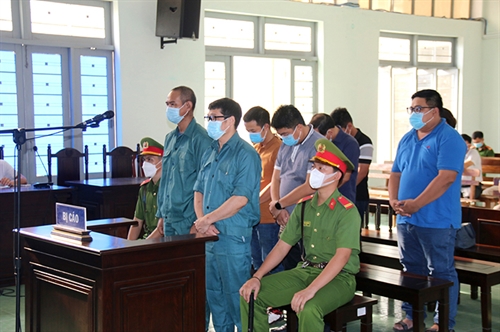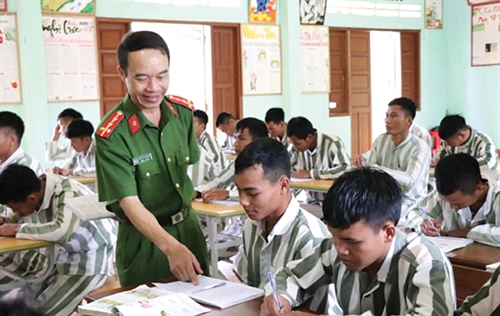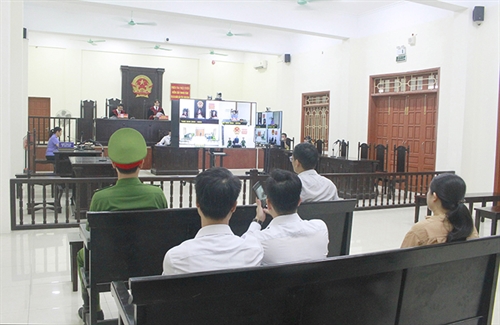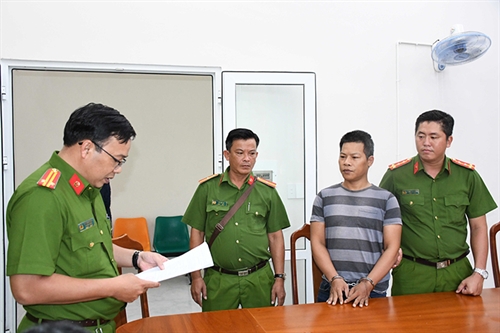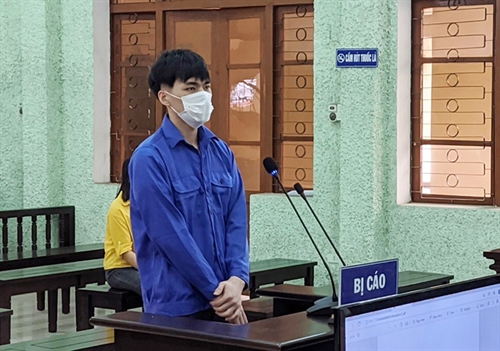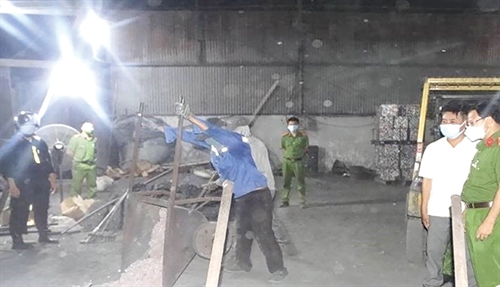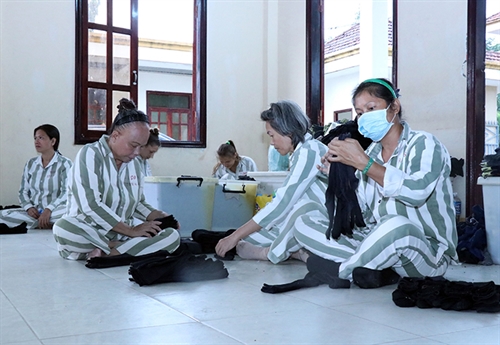Nguyen Toan Thang[1], Nguyen Thi Hong Yen[2] and La Minh Trang[3]
Overview of application of the death penalty in the world and in Vietnam
The right to life is a sacred human right. And, as a supreme right, it was officially recognized by the 1948 Universal Declaration of Human Rights (UDHR) and further affirmed and concretized in other important international law instruments on human rights, such as the 1966 International Covenant on Civil and Political Rights (ICCPR), the Convention on the Rights of the Child, the Convention on the Prevention and Punishment of the Crime of Genocide, and the International Convention on the Suppression and Punishment of the Crime of Apartheid.
In relation with the right to life, the death penalty has become a topic of concern raised by many countries and one of the most controversial issues in the world. At present, numerous countries around the world have abolished the death penalty. However, it is still retained by not a few others, particularly those with a large population. Over the recent years, the world has witnessed the universal trend toward abolition of the death penalty or a moratorium on executions in practice.
With the development of the rule-of-law state and progress in society, a new trend emerged that considered the application of the death penalty as unnecessary, unjust or ineffective. An international consensus that the death penalty needs to be removed from a democratic and civilized society to ensure the effective realization of the human right to life has been recognized by the international law[4]. Besides, the ICCPR and relevant international conventions call on countries to remove or impose a moratorium on execution of, and work out a roadmap to eventually abolish, the death penalty.
On September 24, 1982, Vietnam acceded to the ICCPR. Since then, the country has pursued great efforts to best guarantee the civil and political rights, including the right to life. At present, it still retains the death penalty for particularly serious crimes, including drug-related and corruption-related crimes, crimes infringing upon the national security, human life or health, the economic management order and public safety, crimes undermining peace, crimes against the humanity, and war crimes.
At sessions of defending national reports on realization of human rights in the Universal Periodic Review (UPR) cycles and reports on implementation of the ICCPR, Vietnam has received 11 recommendations on abolition of the death penalty from 27 ICCPR State Parties. Actually, since becoming an official State Party to the international conventions on human rights, Vietnam has spared no efforts to improve its legal system to better guarantee the fundamental human rights. Regarding the death penalty, Vietnam has recorded big strides in implementing the roadmap to reduce the number of crimes punishable by the death penalty. However, the removal of this punishment from the criminal law at the present time is not easy since it depends on various internal factors and conditions of the country.
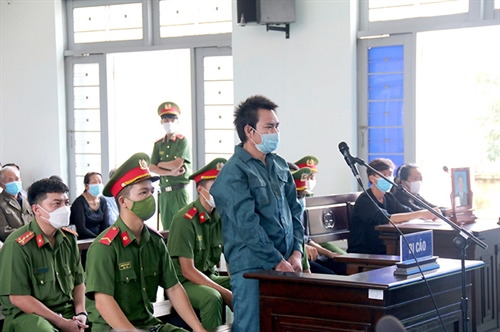 |
| Nguyen Van Ngoc in Binh Thuan province, who is sentenced to death for murder, at the court hearing on May 24, 2022__Photo: Nguyen Thanh/VNA |
Vietnamese law on the right to life and the death penalty
Under Vietnam’s constitutions since 1946, the right to life is always recognized and protected as one of the fundamental human rights. However, only in the 2013 Constitution, the right to life and its protection by law are enshrined for the first time as a constitutional principle with a complete definition and connotation. This constitution affirms that “Everyone has the right to life. Human life is protected by law. No one may be deprived of life in contravention of law”. In furtherance of this provision as well as its relevant international commitments on human rights, Vietnam has unceasingly changed its legal system to guarantee the right to life, having revised the Penal Code and Criminal Procedure Code toward better protecting human rights in general and the right to life in particular[5]. Generally, all versions of the Penal Code define that the death penalty is a special punishment and may only be imposed for particularly serious crimes. In addition, through its revisions, the Penal Code has consistently followed the trend of gradually reducing the number and narrowing the scope of crimes punishable by the death penalty, specifically as in the chart below:
Recommendations of the Human Rights Committee (HRC) on the right to life and abolition of the death penalty
The HRC’s recommendations related to the death penalty
In December 2017, Vietnam submitted the third national report on the implementation of the ICCPR to the HRC. On March 25, 2019, the HRC adopted its recommendations on Vietnam’s report. Concerning the death penalty, the Committee noted that the death penalty was still applied in Vietnam for drug-related crimes, economic crimes and other crimes, which did not meet the threshold of the most serious crimes provided in Article 6 (2) of the ICCPR.
The HRC made recommendations to Vietnam, as a State Party:
(i) to consider introducing a moratorium on the application of the death penalty, and ratifying or acceding to the Second Optional Protocol to the ICCPR, aiming at the abolition of the death penalty;
(ii) until the introduction of a moratorium on the application of the death penalty, to revise the Penal Code to further reduce the number of crimes punishable by the death penalty, and ensure that such punishment is retained only for the most serious crimes that is, for crimes of extreme gravity involving intentional killing; and
(iii) to ensure that the death penalty is not mandatory and, if imposed, is never in violation of the ICCPR.
In the recommendations on the third periodic report of Vietnam in 2019, the HRC regarded the recommendation concerning the right to life and the death penalty as the monitoring one to Vietnam. It also requested Vietnam to report on the implementation of the HRC’s recommendations by March 29, 2021, and submit its fourth report by March 29, 2023.
Vietnam’s obligation to implement the recommendations
The implementation of the HRC’s recommendations plays an important role in the course of implementation of the ICCPR, to which Vietnam is a State Party.
Firstly, the HRC’s recommendations expressed its aspirations and requests toward Vietnam as a State Party. These recommendations are highly specific and include legislative, executive and judicial measures or other specific measures that the State Party should take.
Secondly, the implementation of the recommendations is closely related to the mandatory reporting by the State Party. In the course of formulation of the guidance note for the State Parties to report to the HRC, the UN Secretary General noted that the State Parties should establish an appropriate institution to make their reports and create a coordination mechanism to implement and monitor the recommendations. It is also pointed out that the general core documents of the State Parties should provide general information about measures and processes, if any, to ensure the universal dissemination and effective monitoring of the HRC’s recommendations, and measures applied to implement the HRC’s previous recommendations.
This guidance note is reiterated in specific guiding documents for reports on implementation of each international convention on human rights. The HRC noted that periodic reports should take into account information on the implementation of its previous recommendations as well as information on efforts to disseminate the recommendations to the public and to establish national mechanisms to ensure the monitoring of the recommendations. Accordingly, when making periodic national reports (except for initial reports), the State Parties should take into account the HRC’s previous recommendations and provide information on implementation results.
Thirdly, all reports of the State Parties, the recommendations and monitoring reports, including information on the ranking of the recommendation implementation, will be made public. Therefore, Vietnam, as a State Party, may face negative economic or diplomatic impacts if its implementation of the recommendations is inadequate. Reality shows that in almost all cases, the State Parties have tried their utmost to implement the recommendations[6].
Fourthly, many recommendations of the HRC are identical to those of other Convention Committees, recommendations accepted under the Human Rights Council’s UPR mechanism, and commitments from the UN Agenda 2030 for Sustainable Development Goals. Therefore, the successful implementation of the HRC’s recommendations would help Vietnam accelerate the implementation of the UPR recommendations and recommendations under other international conventions on human rights.
In sum, the implementation of the HRC’s recommendations plays an important role as it helps accelerate the implementation of other recommendations on human rights and accepted UPR recommendations, promote the progress in respecting and protecting human rights, raise the living standards for the people of the State Parties, and finally, raise the status of the State Parties in the international community.
Vietnam’s legal system
To assess Vietnam’s ability for, and extent of, implementation of the HRC’s recommendations concerning the death penalty, it is necessary to clarify the country’s practical status and trends about this issue.
Regarding the recommendation on abolition of the death penalty, at present Vietnam is yet to be able to complete it as the death penalty is still retained in the Penal Code and executed in practice. Its current policy is to minimize or restrict the imposition and execution of the death penalty and eventually abolish it. However, this is a long process.
Regarding the HRC’s recommendations on further reduction of the number of crimes punishable by the death penalty and that the penalty may be imposed only for the crimes of extreme gravity involving intentional killing, Vietnam’s criminal legislation still has many incompatible provisions. Although the number of crimes punishable by the death penalty is significantly reduced in the 2015 Penal Code, economic crimes still face the death penalty. For the future, it is expected that the number of crimes punishable by death will be further reduced. The scope and roadmap of reduction will depend on Vietnam’s national socio-economic conditions and requirements of the crime prevention and combat.
The HRC has also recommended Vietnam to accede to the Second Optional Protocol to the ICCPR. Prominent among the provisions of the Protocol are two main requirements related to Vietnam: no one within the jurisdiction of the State Party shall be executed and the State Party shall take all necessary measures to abolish the death penalty within its jurisdiction[7].
The practical adjudication in Vietnam shows that its courts have still applied the death penalty for some crimes and it is ungrounded to affirm that the possibility of execution of the death penalty has been totally eliminated in practice. This means that Vietnam’s legal system does not yet satisfy the requirement of the Protocol on abolition of the death penalty.
So, Vietnam can hardly fulfill its obligation to implement the recommendations on the death penalty by the set deadline for sending its recommendation and periodic reports due to the existing incompatibilities between the domestic laws and the ICCPR, particularly the provisions of the Second Optional Protocol to the ICCPR. Vietnam will have to implement the recommendations as scheduled and but might accept that it will be ranked B or C by the HRC.
Conclusion
As an issue of highly political and legal nature, the abolition of the death penalty should be examined in a very prudent manner. This would require an in-depth study of the crime situation, existing crime prevention and combat measures as well as the possibility of suppressing crimes with other alternative penalties in lieu of the death penalty, and at the same time, taking into account of political, economic, social and cultural factors for making appropriate assessment of the possibility of abolition of the death penalty. Like many countries around the world, Vietnam has been implementing the schedule in order to step by step limit the scope of application of the death penalty, and reduce the number of crime subject to death, with a view to moving toward completely abolishing it.-
[1] Nguyen Toan Thang, LL.D., Director of the Comparative Law Institute, Hanoi Law University[2] Nguyen Thi Hong Yen, LL.D., Head of the Department of Public International Law, Hanoi Law University[3] La Minh Trang, LL.M., Public International Law Lecturer, Hanoi Law University[4] Article 3 of the UDHR and Article 6 of the ICCPR.[5] Since its first version enacted in 1985, the Penal Code underwent eight revisions in 1989, 1991, 1992, 1997, 1999, 2009, 2015, and 2017. The two most comprehensive revisions were in 1999 and 2015.[6] The HRC points out that since 2014, 52% of total recommendations have been fully or partially implemented.[7] Article 1 of the Second Optional Protocol to the ICCPR.



